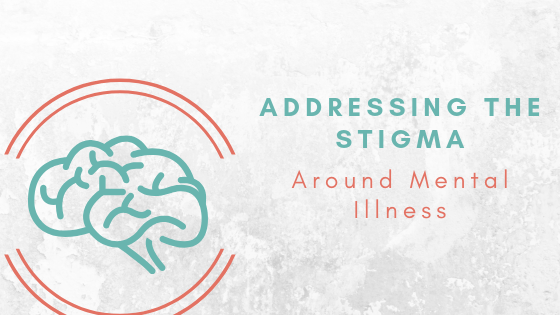Addressing the Stigma Around Mental Illness
Addressing the Stigma Around Mental Illness
Mental illness has a long history of having a stigma attached to it. While significant progress has been made to combating the stigma, it is something that continues on and affects the number of people who seek out mental health care.
What is Stigma?
Stigma is a form of disapproval or discrimination against a person, group, practice, or thing. Stigma is a concern among mental illness and mental health care that has been occurring throughout history.
Why Does Stigma Around Mental Illness Exist?
In the past, mental illness was not understood. People with serious mental health issues were often seen as possessed by evil spirits, rather than individuals needing support. Even more recently, mental illnesses was seen as an individual deficit, or even a choice, rather than a true condition that can be managed or treated.
Mental Health Care Versus Physical Health Care
Mental health care is affected by stigma in a way that physical health care is not, but why is this? There are many possible reasons for this difference, but most obviously is the fact that physical illnesses are often observable.
A broken bone can be seen in an X-Ray. High blood pressure can be observed. But mental disorders? It is much harder to see depression or anxiety (although technological advances are now able to observe how your brain changes during certain mental states or traumatic experiences). Not being able to see mental illnesses subjects it to a lot more stigma, as many may question the severity, or even the reality, of mental illness.
How Does Stigma Affect Mental Health Care?
Stigma is a huge barrier to mental health care, as many people will avoid seeking out care due to the fear of being labeled or seen as “crazy” or less-than. More than that, this stigma affects the awareness around mental health, as many people stray away from talking about, and informing themselves about, mental health and mental disorders. This is dangerous, as avoiding discussion around mental health and mental disorders bars access to those who need mental health support and does not allow for education on mental health, mental disorders, and important warning signs.
What Can We Do to Combat Stigma?
Stigma surrounding mental illness will not change overnight. However, over time, we can all collaboratively work toward decreasing the stigma and increasing the acceptance and support for mental health and mental health care. The first thing we can do is to improve awareness around mental health. This can be done by starting the conversation around mental health and mental illnesses and improving education and awareness on the issues. Ultimately, this increased awareness and education will promote access and support for those who need it.
Hudson Therapy is a Westchester county counseling practice located in White Plains, NY. Our team of therapists provide individual therapy for children, teens and adults.


